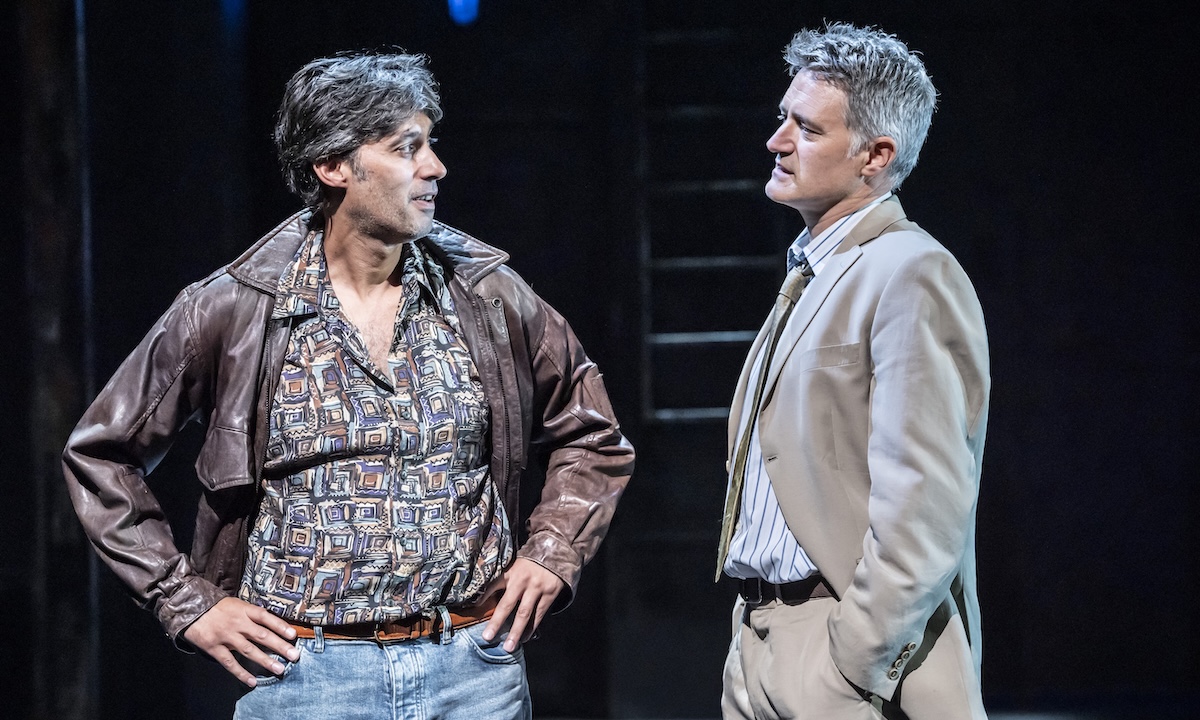Writer: Alma Cullen
Director: Anthony Banks
There’s a lot riding on this production of Hamlet for Lawrence. After a sojourn in the States when the big names in Britain refused to work with him – to get the best performances from his cast, he’s not above bullying – in 1987, he returns to where it all began for him, Oxford, the city of dreaming spires.
It all began for Lawrence 25 years earlier in 1962, with a production of Hamlet that was destined for great things – until Hamlet unexpectedly walked away from the part and acting in general. Some members of that company have come together again in the present for Lawrence’s comeback, bringing baggage aplenty from their experiences in the original company. In the audience tonight is another member of that 1962 set, one who, despite his obvious academic brilliance, never finished his degree: Chief Inspector Morse of Thames Valley Police. Which is handy when a cast member collapses and dies on stage, and Morse is on the spot to take charge. And, of course, there are twists as we learn more about the events now and in 1962 before all is revealed.
The Inspector Morse books of Colin Dexter spawned the TV series that originally aired between 1987 and 2000. Its format was groundbreaking with its focus on the troubled, grouchy cerebral detective and his relationship with the more grounded and empathetic Sergeant Lewis, rather than on high-speed car chases or fistfights. John Thaw made Morse his own, making it hard to imagine anyone else in the role, while Kevin Whateley went on to star in the spin-off series, Lewis, after Morse’s untimely death.
And now we have this stage adaptation: an original story by Alma Cullen, who wrote some of the original Inspector Morse TV episodes, with Tom Chambers stepping into Thaw’s shoes as Morse and Tachia Newall playing Lewis.
The production has a cinematic feel: we have mostly short scenes, a structure supported by slick set changes as set elements are rolled on and off to transport us from the stage to the stage door to a police interview room to the banks of the river – this slickness is down in large part to the set design by Colin Richmond and lighting design from Lizzie Powell.
The cinematic feel is enhanced by the soundscape of Beth Duke. Classical pieces, so beloved of Morse, underpin some of his more personal scenes, while the brilliant Inspector Morse theme from Barrington Pheloung swells and fills the auditorium at key moments.
But what is lacking is any build-up of tension: the whole is somehow flat. While Morse isn’t known for dynamism, the steady pace is perhaps overdone. The paternal, pompous and slightly patronising relationship with Lewis could be developed more: while we see a suggestion of their relationship, for example, when they discuss the case in the pub, Lewis too often feels sidelined. If Chambers’ Morse is understated, albeit with an undercurrent of high emotion – anger? – that is omnipresent and occasionally breaks the surface, Newall’s Lewis is even more so. Despite each suspect having an extensive backstory from sexual shenanigans to closeted homosexuality, we never feel as if we’re getting under their skins or that they are real, three-dimensional people.
Fans of Chambers or the TV series will find enough to enjoy: there are noteworthy moments and the plot is complex enough to bear discussion on the way home, but, for this reviewer at least, it’s not quite there yet.
Runs until 14 September 2025 and on tour
The Reviews Hub Star Rating
